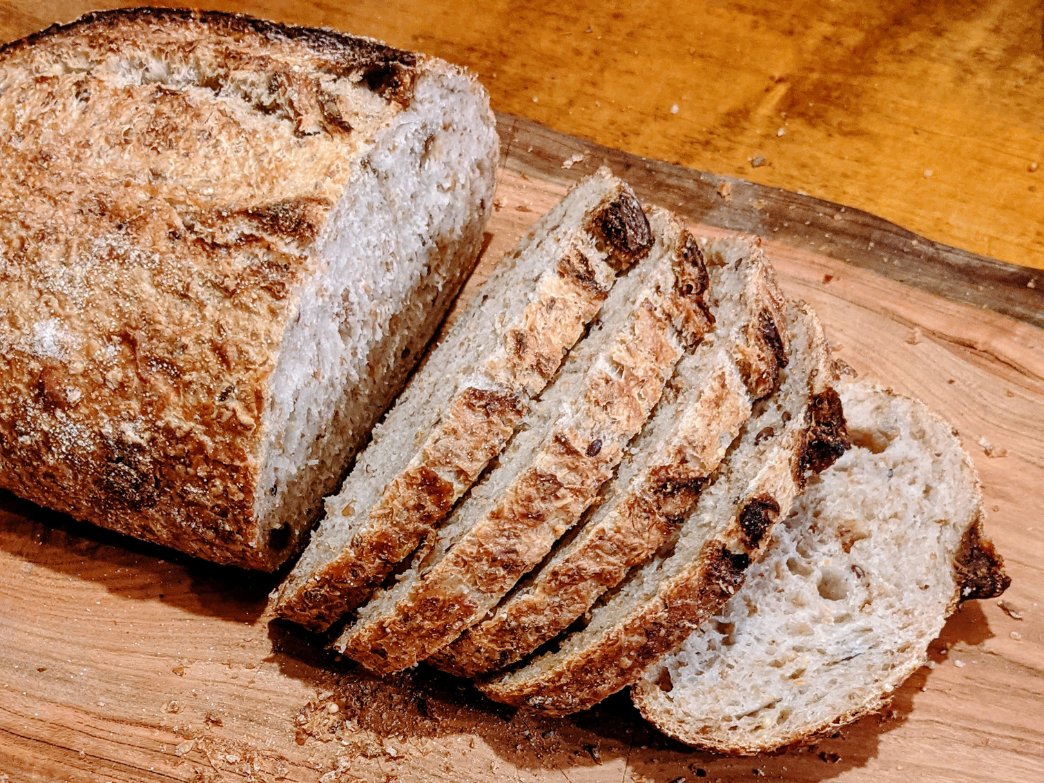By Dr. Jorge, Ph.D.
Wildgrain, opens in a new tab is the first bake-from-frozen subscription box for sourdough breads, fresh pastas, and artisanal pastries.
It seems like everywhere you turn, you hear that whole grains are superior, and it can feel like you just can’t eat enough of them. You might know whole grains are good for you in theory, but do you know how they compare to other types of grains? In this article, we’ll help demystify the world of grains so you can make informed choices during your next grocery trip.
What is the difference between whole grains, refined grains, and enriched grains?
As the name suggests, whole grains contain all parts of the grain, including the bran, germ, and endosperm. In contrast, refined grains are milled to remove the bran and germ, which also strips away many essential nutrients. Enriched grains are refined grains that have had some of those lost nutrients, such as iron and B vitamins, added back in after processing.
What is healthier to eat: whole grains or refined grains or enriched grains?
Whole grains are the healthiest type of grain because they are the least processed and retain the entire grain kernel (bran, germ, and endosperm), making them rich in fiber, vitamins, minerals, and antioxidants. Enriched grains are the next best option, as some nutrients lost during processing, such as iron and B vitamins, are added back in. Refined grains are the least healthy, as they lack fiber and many essential nutrients. They also tend to have a higher glycemic index, which can lead to spikes in blood sugar levels.
Is it good to eat whole grains every day? Is there a downside to eating whole grains?
Yes, it is generally recommended to eat whole grains every day as part of a healthy and balanced lifestyle. Research has shown that a diet rich in whole grains is associated with health benefits, such as a lower risk of heart disease, type 2 diabetes, and certain types of cancer. Whole grains are also an excellent source of fiber, which supports healthy digestion and can aid in weight management. However, some individuals may experience digestive discomfort due to the high fiber and complex carbohydrate content of whole grains, particularly if they have sensitivities or underlying digestive conditions.
Are whole grains inflammatory? Are refined grains inflammatory?
Whole grains are generally not considered inflammatory. In fact, their high fiber and antioxidant content may help reduce inflammation in the body. These nutrients support gut health and promote a balanced immune response. In contrast, refined grains may contribute to inflammation. Because they lack fiber and essential nutrients, refined grains can disrupt the gut microbiome and cause blood sugar spikes, both of which are linked to inflammatory responses.
Are enriched grains good for you?
Enriched grains are not necessarily considered healthy, though they are a better option than refined grains. While certain nutrients are added back during the enrichment process, enriched grains still lack the full nutritional profile of whole grains, particularly fiber and other vitamins and minerals that are lost during processing.
What are examples of refined grains? What are examples of whole grains?
Some common examples of refined grains include white pasta, white rice, and white bread. In short, any product made with white flour is made from refined grains. In contrast, whole grain flour can be used to make brown rice, brown pasta, and whole wheat or whole grain bread. Other examples of whole grains include oats, quinoa, and barley.
About the Author
Dr. Jorge has been a public health researcher for many years, holding both a Bachelor's degree and a Ph.D. in Chemistry. They presently work as a medical writer and love being able to assist others in understanding various health and scientific topics.
This content is for informational use only and does not replace professional nutrition and/or medical advice, diagnosis or treatment. It is not a substitute for and should not be relied upon for specific nutrition and/or medical recommendations. Please talk with your doctor about any questions or concerns.



